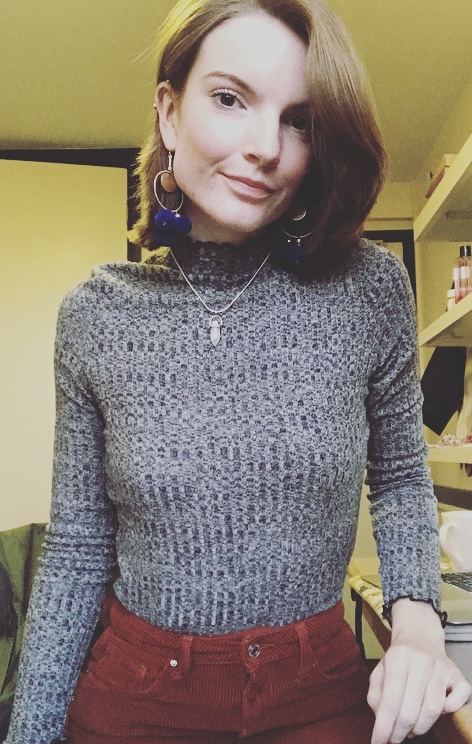Changing the Plant-Based Game with Louie Psihoyos
From directing the film Racing Extinction to producing Chasing Ice, Psihoyos’s latest project brilliantly unpacks the myths of the meat industry.
Photojournalist, licensed scuba diver, documentary film director, National Geographic photographer, Oscar-winner, vegetarian. For everything digital and environmental, Louie Psihoyos is one of the top photographers in the world who is using his visual platform to educate, inform, and motivate positive change. Curious about how plant-based diets are changing the game for athletes and people across the country? Watch Louie’s latest documentary, The Game Changers, which follows the journey of a UFC fighter who discovers an elite group of renowned athletes and scientists redefining the relationship between athleticism and plant protein.
Using all of his skills in technology and art, Louis Psihoyos also became the co-founder of Oceanic Protection Society in order to educate the public about the deterioration of ocean climates. Through directing films such as Racing Extinction and The Cove, as well as participating in the production of films such as Chasing Ice and Chasing Coral with Richard Vevers, Psihoyos ensures that no one remains in the dark about climate change. Join BWB as we discuss Louie’s latest film and unpack the myths of the meat industry.

When I first met you 4 years ago at a screening for your film, Racing Extinction, someone in the audience asked you how we can all participate to make changes and help the planet. You replied that if we all maintained a plant-based at least once a week, it would make a tremendous impact. Have we made any progress since then? Do we need to do more now?
The number of people who have adopted a plant-based diet in the U.S. has grown 600% in the last three years, so public awareness about the link between animal consumption and environmental degradation has increased dramatically. I’d like to think Racing Extinction had a little bit to do with that awareness.
Moving forward, we made Game Changers to disprove the cultural myth that you need to eat meat and other animal products in order to have strength and endurance. Professional athletes are finding that a plant-based diet actually gives them a huge advantage over their competitors because plant protein is cleaner and more conducive to quick recovery.
When did you adopt a plant-based diet? What was the turning point for you?
Some 33 years ago, when I started down this path, we weren’t really aware of the environmental effects of the animal agriculture industry. When I was a photographer working for Fortune magazine, I was hired to photograph the biggest independently owned ranches in the U.S. I went to one that was so large they had their own slaughterhouse. Like most slaughterhouses, they employ a device called a captive bolt to kill cattle, which I was able to see in action. There is definitely a reason why many people often say, “if slaughterhouses were made of glass we wouldn’t have slaughterhouses.” I surely know why after this experience– I can still feel that cow’s eyes locking eyes with mine.
What was I going to eat for protein if I cut out all meat? At the run-up to the Academy Awards in LA, I met my first vegan and after asking her what she ate, she told me: “everything else – all protein originates in plants.” I found out that animals were in fact just the middle men for all nutrition, so I just began to cut out the middleman and go right to the plants.

With respect to the health aspects of eating meat, it seems that there are many who believe in a carnivorous diet. How does the average person sort through all of these conflicting facts?
The food industry’s first response is not to change in response to health concerns; instead, they create confusion and doubt. Last week, the Annals of Internal Medicine published a report stating that meat is good for you. They determined that people should largely keep on eating what they are eating, which is a lot of meat. Using the same twisted logic they employed, you could determine that smoking wasn’t that harmful. Or sugar. In fact, an investigative piece by The New York Times reported that one of the ‘researchers’ of the report about meat was indeed the lead author of the debunked sugar report which was later revealed to be backed by the fast food and beverage industries.
As far as the paleo diet goes, why would anyone want to adopt the diet of an ancient relative who only lived into their 30’s? There’s a widely held misconception that early man was a carnivore, a so-called hunter/gatherer. In fact, we’re gatherer/hunters. If you look at the primitive cultures around the world, those most removed from modern civilization, anthropologists report that as much as 85% of their calories are collected from plants and mostly by women. Men do hunt some but they mostly do it for social reasons, frequently expending more calories on the hunt than they collect – half the time they come back without anything.
To get more people to convert to plant-based diets, we really need to prove that it’s not normal, necessary or natural to eat animal products. Eating a whole-foods, plant-based diet from a wide variety of plants is the optimal diet for living long without chronic disease.
Amongst other things, your film brilliantly tackles the American trope that “real men eat meat.” Is this a uniquely American phenomenon?
Real men don’t listen to marketing slogans like this one. America currently spends 3.6 trillion dollars on health care, which is six times more than we spend on defense and 80-85 percent of it is preventable. Animal domestication for human consumption is the biggest cause of fresh water pollution, the largest cause of habitat destruction, and one of the largest causes of greenhouse gases. Real men care about their family’s health, their own health, and the health of the planet.
Change what’s on your plate, and you will change the world– especially your world.
What are some things we can do in our daily lives to make this planet a better place to live?
The number one thing you can do is vote for environmentally conscious candidates. Other than that, try eating one meal a week that’s vegetarian. Every person that becomes plant-based saves over 3.5 tons of carbon per year per person, 10,950 square feet of forest, 401,500 gallons of fresh water, and an estimated 14,600 pounds of grains. The evolution of humanity towards a plant-based diet isn’t just a win for the environment and the animals with whom we share the Earth – it could become a win for humanity itself.
Lastly, how can we help spread the message of your film?
First, watch the film! It’s available on iTunes, Google Play, Vimeo, Vudu, YouTube, and Netflix. If you like it, share it! We have zero money for marketing, but Game Changers was the number one pre-selling film on iTunes last week and we outsold every Hollywood blockbuster film. If we’re going to win the war on the environment and get back our health, it’s going to be done by people sharing hope and spreading good news.

Teresa Deely is a graduate from Columbia University with majors in English and Creative Writing. She is a freelance writer and marketing assistant working for clients in the wellness, jewelry, creative, and sports industries. She believes that one’s skin is yet another canvas and vehicle for art, and has loved styling her hair and applying makeup from a young age. Spending much of her time in educating youth and leading enrichment programs for children, she is highly motivated in discovering new ways to care for herself and sharing them with others.







